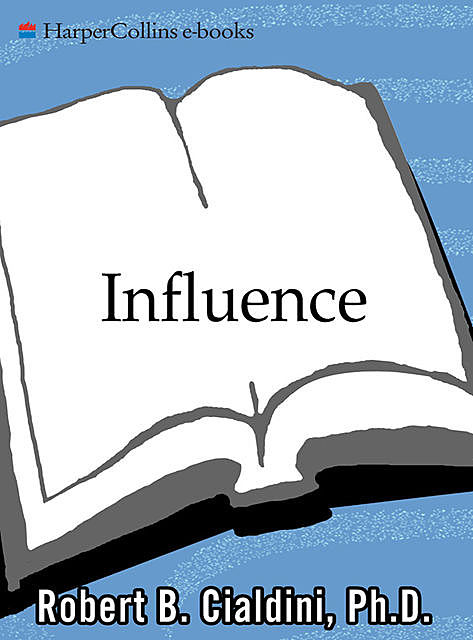Influence: The Psychology of Persuasion
Эта книга сейчас недоступна
416 бумажных страниц
- Год выхода издания
- 2009
Впечатления
- Anastasia Gaydashenkoделится впечатлением6 лет назад👍Worth reading💡Learnt A Lot
- b9281010009делится впечатлением8 лет назад💡Learnt A Lot
Цитаты
- njjjjhgyjцитируетв прошлом годуWe will use the actions of others to decide on proper behavior for ourselves, especially when we view those others as similar to ourselves
- njjjjhgyjцитируетв прошлом годуthat, for the emergency victim, the idea of “safety in numbers” may often be completely wrong. It might be that someone in need of emergency aid would have a better chance of survival if a single bystander, rather than a crowd, was present. To test this unusual thesis, Darley, Latané, their students and colleagues performed a systematic and impressive program of research that produced a clear set of findings. Their basic procedure was to stage emergency events that were observed either by a single individual or by a group of people. They then recorded the number of times the emergency victim received help under those circumstances.
In their first experiment, a New York college student who appeared to be having an epileptic seizure received help 85 percent of the time when there was a single bystander present but only 31 percent of the time with five bystanders present. With almost all the single bystanders helping, it becomes difficult to argue that ours is “The Cold Society”
where no one cares for suffering others. Obviously it was something about the presence of other bystanders that reduced helping to shameful levels.
Other studies have examined the importance of social proof in causing widespread witness “apathy.” They have done so by planting within a group of witnesses to a possible emergency people who are rehearsed to act as if no emergency were occurring. For instance, in another New York—based experiment, 75 percent of lone individuals who observed smoke seeping from under a door reported the leak; however, when similar leaks were observed by three-person groups, the smoke was reported only 38 percent of the time. The smallest number of bystanders took action, though, when the three-person groups - njjjjhgyjцитируетв прошлом годуThe greater the number of people who find any idea correct, the more the idea will be correct. The group’s assignment was clear; since the physical evidence could not be changed, the social evidence had to be. Convince and ye shall be convinced!6
fb2epub
Перетащите файлы сюда,
не более 5 за один раз


